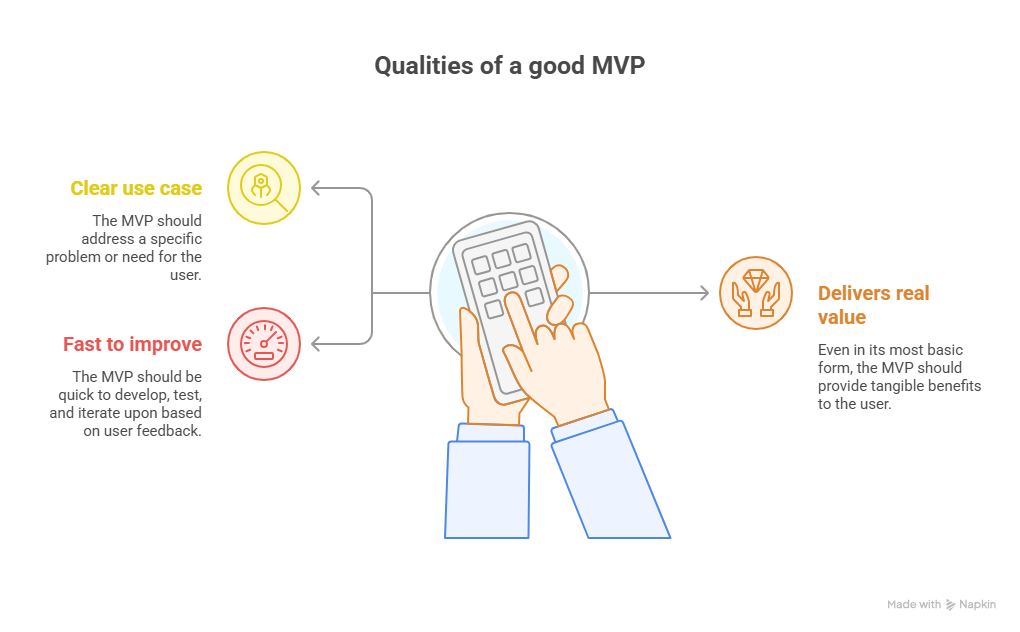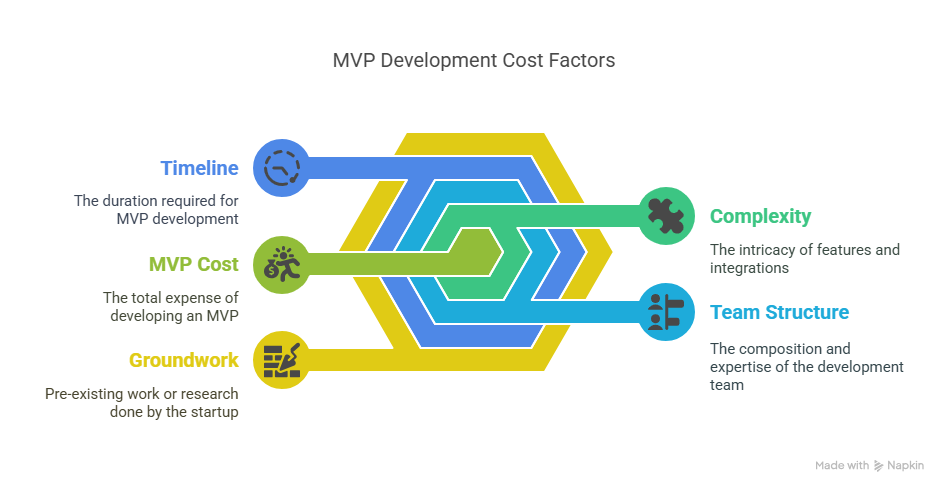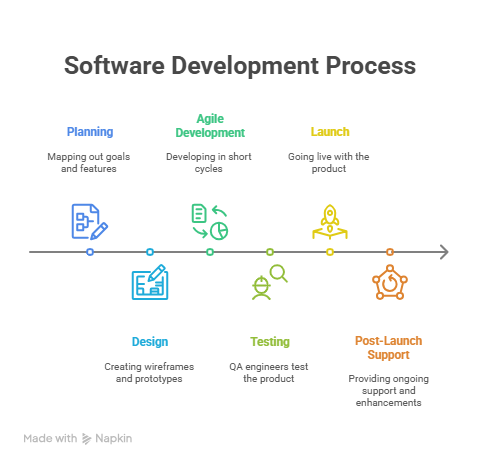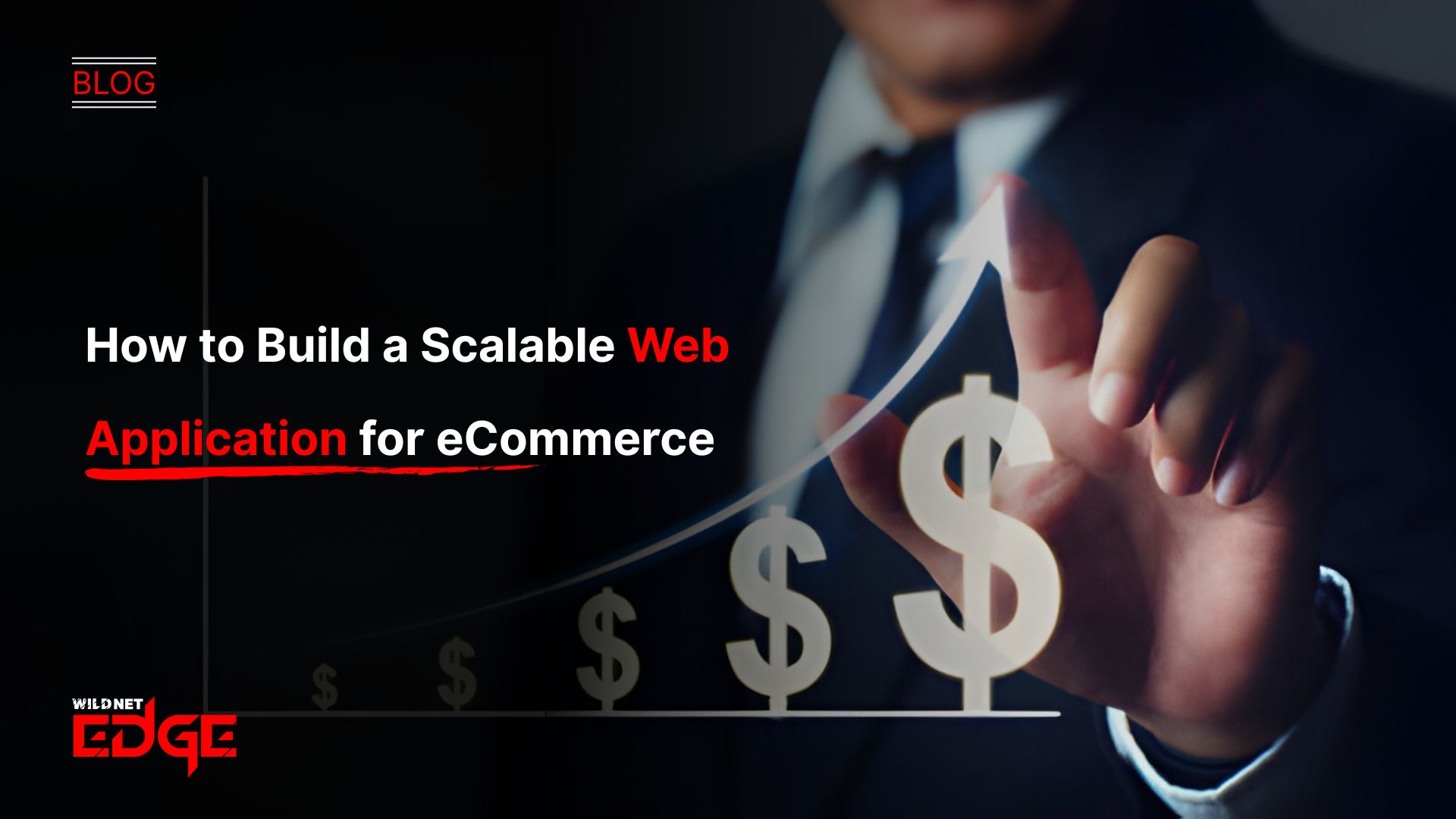Building a startup in 2026 isn’t just about having a great idea; it’s about getting that idea to market fast, learning from real users, and making smart decisions with limited resources. That’s why many founders start with an MVP, or Minimum Viable Product.
The demand for MVP development services is growing because early-stage teams need more than code; they need clarity, speed, and a path to product-market fit. Done right, an MVP helps you validate your concept, attract investors, and reduce the risk of building something no one wants.
But what does the MVP process look like today? How much time should you budget? What does it really cost to build one, and what should you expect at each step?
This blog answers all of that. We’ll break down what modern MVP development services include, how long it typically takes, what factors influence cost, and how to approach the process with the right mindset.
What Is an MVP in Startup Software Development?
An MVP, or Minimum Viable Product, is the simplest version of your product that solves a core problem for your target users. It’s not the final product, and it’s not supposed to be. Instead, it’s a lean version you can use to test assumptions, gather feedback, and prove your concept works in the real world.
In the context of startup software development, an MVP is often the first serious step toward market entry. You’re not building everything, you’re building just enough.

Here’s what makes a good MVP:
- It focuses on a single, clear use case
- It delivers real value, even in its simplest form
- It’s fast to build, test, and improve
Too often, early-stage teams confuse MVPs with prototypes or watered-down products. But a proper MVP should be functional, usable, and capable of delivering insight, not just mockups or ideas.
For many founders, working with a software development company for startups makes all the difference. They bring in product thinking, technical know-how, and just enough structure to keep the process moving fast without losing focus.
Whether you’re validating demand, attracting investors, or preparing to scale, an MVP helps you do it with less risk and more clarity.
Timeline for MVP Development Services for Startups in 2026
One of the first questions founders ask is: How long does it take to build an MVP? The answer: it depends, but in most cases, it’s faster than building a full product, and it should be.
A typical MVP development timeline ranges between 6 to 16 weeks, depending on your scope, clarity, and the team you’re working with. In startup environments, where time equals runway, speed matters, but not at the cost of quality.
What affects your MVP timeline?
- Clarity of your idea
The clearer your product goals and user flows, the faster the team can move. If you’re still figuring things out, expect extra time for discovery and refinement. - Scope of features
More features mean more time. A lean MVP sticks to the essentials, one or two key workflows that deliver value. - Team structure
Working with an experienced software development company for startups often speeds things up. They already have product managers, designers, and developers aligned on how to deliver fast without cutting corners. - Technology choices
Using modern, scalable frameworks (like React, Node.js, or Flutter) can streamline development, especially when building with future growth in mind.
Typical MVP Development Phases:
| Phase | Timeframe (Estimated) | Purpose |
| Discovery | 1–2 weeks | Clarify the problem, define MVP goals |
| UI/UX Design | 1–3 weeks | Wireframes, user flows, basic visual design |
| Development | 3–8 weeks | Build core functionality |
| QA + Testing | 1–2 weeks | Ensure stability, performance, and usability |
| Launch & Feedback | Ongoing after release | Gather user feedback and plan next steps |
A good partner offering MVP development services for startups will help you move through each phase efficiently, without rushing important decisions. The goal isn’t just to launch, it’s to learn, iterate, and build momentum.
MVP Development Cost: What Startups Should Expect to Spend
One of the most common questions founders ask is: How much does it cost to build an MVP? The short answer is: it depends.
Every MVP is different. Some focus on a single user journey with minimal backend, while others require custom dashboards, real-time features, or complex integrations. That’s why most MVP development services don’t offer flat pricing. Instead, they estimate based on scope, team structure, and timeline.
Most startups can expect to spend anywhere between $15,000 to $75,000, depending on the complexity of the product, who builds it, and how much groundwork has already been done.
The good news is, when done right, an MVP saves far more than it costs, in wasted time, bad product decisions, and missed feedback.
What affects MVP development costs?

- Scope
More features, more screens, more complexity = higher cost. MVPs with a single core function are far more cost-effective. - Design requirements
Custom UI/UX design can be lightweight or very detailed. Good design helps with usability, but it doesn’t need to be pixel-perfect at this stage. - Backend complexity
Will your MVP need a custom database, user authentication, dashboards, or third-party integrations? These all impact pricing. - Who builds it
A custom software development company for startups may cost more than a freelance team upfront, but they typically bring better structure, fewer errors, and faster delivery. - Post-launch support
Your MVP isn’t done at launch, you’ll need support to gather feedback, make tweaks, fix bugs, and possibly scale features. It’s smart to factor that into your budget early.
MVP Development Services Cost Tiers: A General Estimate
| MVP Type | Estimated Cost | Use Case Example |
| Simple MVP | $15K – $25K | One core feature, no complex integrations |
| Mid-level MVP | $25K – $50K | 2–3 key workflows, moderate backend logic |
| Complex MVP | $50K – $75K+ | Dashboards, APIs, custom logic, admin panel |
A reliable software development company for startups will help you align scope and budget without overbuilding. The goal is not to launch a “perfect” product. It’s to validate your riskiest assumptions quickly and cost-effectively.
What to Expect When Working with an MVP Development Services Company
If it’s your first time building a product, working with an external team can feel like a leap. But when you’re partnering with a company that specializes in MVP development services for startups, the process becomes a lot more structured and predictable, even if your product idea is still evolving.
Most startup-focused teams break MVP development into clear, fast-moving phases:

- Discovery & Scope Definition
You’ll map out goals, user types, workflows, and must-have features. Expect a lot of questions, that’s a good thing. - Design (UX + UI)
Wireframes come first, followed by clickable prototypes and final UI screens. You’re actively involved here to ensure it reflects your vision. - Agile Development Sprints
Development happens in short cycles (1–2 weeks), with regular demos and progress updates. You get to review features as they’re built. - Testing & Launch Prep
QA engineers test the product across devices and browsers. Final tweaks are made before you push live. - Launch & Post-Launch Support
You go live, but it doesn’t end there. You may continue working with your partner on bug fixes, enhancements, or scaling plans.
Your Role as the Founder:
Even if you’re non-technical, you play a critical role in shaping the product:
- Provide feedback early and often
- Stay available for quick decision-making
- Help prioritize features based on user value
A solid software development company for startups will guide you without overwhelming you. They’ll help you avoid overbuilding, stay focused on validation, and move fast, but not recklessly.
How to Choose the Right MVP Development Partner for Your Startup
Choosing the right team to build your MVP can make or break your early product journey. There’s no shortage of agencies and freelancers offering MVP development services, but not all are equipped to work at startup speed, or understand how to balance lean product development with long-term vision.
Here’s what to look for when evaluating a software development company for startups:
1. Experience with Early-Stage Products
You want a team that knows how to build under uncertainty. Startups move fast and pivot often. The right partner understands how to work with evolving requirements while keeping the project on track.
2. A Focus on Product Thinking
It’s not just about writing code. A good custom software development company for startups helps you prioritize features, simplify workflows, and think about your MVP as a launchpad, not just a technical project.
3. Clear Communication and Collaboration
You’ll be working closely with your team, often daily. Look for a partner who’s transparent about timelines, scope changes, and feedback loops. You shouldn’t have to chase them for updates.
4. Technical Versatility
Your MVP may need web, mobile, or both. It might include admin panels, APIs, or real-time functionality. The development team should have a proven ability to work across stacks and integrate where needed.
5. Post-Launch Support
The MVP is just the beginning. Make sure your partner offers support after launch, for bug fixes, performance tweaks, or new iterations based on user feedback.
Ask direct questions. Review case studies. And most importantly, find a partner who gets what it’s like to be a startup, because that understanding shows in how they build.
Launch Smart with MVP Development Services from WildnetEdge
Your MVP isn’t just a product; it’s your startup’s first real signal to the market. It’s how you validate your idea, attract early users, and start building momentum.
But building one the right way takes more than code. It takes product thinking, startup experience, and a team that knows how to move fast without breaking everything. That’s exactly what we do at WildnetEdge.
We work with early-stage startups to deliver lean, focused, and functional MVPs that are ready for real-world feedback. Whether you’re starting with just an idea or refining a pitch deck for investors, our team can help you translate vision into software, and do it on your timeline.
FAQs
1. What exactly is included in MVP development services?
Ans. MVP development services typically include product discovery, UI/UX design, core feature development, quality assurance, and launch support. Some teams also offer post-launch maintenance and user feedback integration.
2. How do I know if my startup is ready to build an MVP?
Ans. If you’ve validated your idea, identified a real user need, and can define a clear core feature set, you’re ready. A good custom software development company for startups can also help clarify your MVP scope before building begins.
3. Can I scale my MVP into a full product later?
Ans. Yes. A well-structured MVP is built with scalability in mind. It’s common for startups to launch lean and then iterate based on real-world feedback and traction.
4. What if I don’t have a technical co-founder?
Ans. You don’t need one to get started. Many founders work with a software development company for startups that brings in the technical leadership needed to guide the process and fill that gap.
5. How involved should I be during the MVP development process?
Ans. As the founder, you should be actively involved in decision-making, feedback, and prioritization. The most successful MVPs come from close collaboration between the founder and the development team.

Managing Director (MD) Nitin Agarwal is a veteran in custom software development. He is fascinated by how software can turn ideas into real-world solutions. With extensive experience designing scalable and efficient systems, he focuses on creating software that delivers tangible results. Nitin enjoys exploring emerging technologies, taking on challenging projects, and mentoring teams to bring ideas to life. He believes that good software is not just about code; it’s about understanding problems and creating value for users. For him, great software combines thoughtful design, clever engineering, and a clear understanding of the problems it’s meant to solve.
 sales@wildnetedge.com
sales@wildnetedge.com +1 (212) 901 8616
+1 (212) 901 8616 +1 (437) 225-7733
+1 (437) 225-7733















 ChatGPT Development & Enablement
ChatGPT Development & Enablement Hire AI & ChatGPT Experts
Hire AI & ChatGPT Experts ChatGPT Apps by Industry
ChatGPT Apps by Industry ChatGPT Blog
ChatGPT Blog ChatGPT Case study
ChatGPT Case study AI Development Services
AI Development Services Industry AI Solutions
Industry AI Solutions AI Consulting & Research
AI Consulting & Research Automation & Intelligence
Automation & Intelligence













